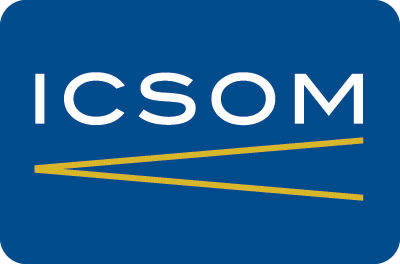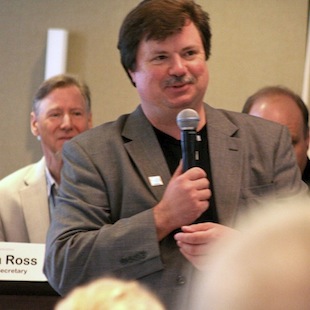



Oslo, Norway February 22, 2014
Fourteen days ago, President Obama nominated a new chairperson for the National Endowment for the Arts. The musicians of the International Conference of Symphony and Opera Musicians (ICSOM), welcome the nomination of Jane Chu, as we lobbied vigorously for the President to take this action. The President waited 13 regrettable months though before he even made a nomination. The position stood vacant for all of that time; even as some members of Congress called for massive cuts in the National Endowment for the Arts (NEA) in an attempt to weaken the agency.
The NEA was established in 1965 and is dedicated to bringing the arts to all Americans. But since its founding, the NEA has been a constant target for political attacks.
There is a misperception that the U.S. Government spends a great deal on arts funding, but the reality is that only 0.066% of the Federal budget is invested in the arts. And for that feeble investment, there is a considerable return. Each dollar the government invests in the arts returns over $7 dollars to the community.
American orchestras are non-profit, tax exempt organizations. In 1966, just a year after the creation of the NEA, another organization, the National Football League (NFL), was also granted non-profit status by the U.S. Government. American Football is very popular, and the NFL generates almost $10 billion in annual revenue and pays its commissioner a yearly salary over $44 million. A 30-second advertisement during this year’s Super Bowl cost $4 million. But as a non-profit organization, the NFL pays no taxes.
This is not meant as an attack on the NFL. Like many Americans, I was raised in an environment where football was part of every Sunday afternoon, but the incongruity between a non-profit that earns almost $10 billion a year and an arts organization that struggles to survive must be noted as simply absurd and indicative of how government undervalues the arts.
Politicians in our country bemoan the descending ranking of our education system, yet multiple studies reveal the value of the arts in enhancing our children’s future. Despite evidence indicating the need to invest in the arts, our federal and local governments continue to cut the arts in schools.
But let’s continue the comparison of non-profits by looking at the budgets for our ICSOM orchestras. The $44 million annual salary of the football commissioner alone surpasses the annual individual budgets of 40 ICSOM member orchestras. In fact, just two minutes of commercial airtime during the Super Bowl broadcast surpasses the budgets of 12 of our ICSOM orchestras.
In America, orchestras have faced a time of difficulty as we emerge from the recession. The troubles have been widely reported, and even more widely misreported. There have been some terrible situations, with an unprecedented lockout in Minnesota, and the bankruptcy of the New York City Opera among others. But the true story to be told is how resilient our orchestras have been, with many orchestras achieving record fundraising and increased attendance. This is true in Cleveland, Houston, Los Angeles, St. Louis, Chicago, Buffalo and many other cities.
Unfortunately, the media loves a negative story and the many successes have been drowned out by the relatively few failures. This false negativity hurts us all, and damages our ability to change the minds of politicians who are too eager to accept stereotypical statements such as “classical music is dead.” Some journalists have been writing that same story for over 60 years.
The good news I bring you today is that the bad news that permeates so many discussions of the future is largely false. Unfortunately, though, those false messages can be self-fulfilling and too easily believed by political leaders.
We must not be dissuaded by these negative self-promoting voices. We have a message of hope for the world and we must find ways to be heard. This will require political astuteness and unity among all musicians. We must harvest the power of social networking to advocate any cause that musicians in any country might face. We must recognize that our true opponent is frustration; and our true enemy is apathy.
Those who spread negative messages claim that our audiences are aging beyond retrieval, but The Cleveland Orchestra has doubled the number of students attending its concerts, and I continue to see an infusion of youth in concert halls all over the world. To claim that aging audiences create an insurmountable problem, one must ignore that, in 1940, life expectancy was 62 years. Today it is 79 years. If we accept that people generally tend to turn towards attending symphonic concerts after they have reached a point of greater leisure in their lives, then the fact that we have our target audience for an additional 17 years of life is not a problem, it is an opportunity.
A positive note from the recent NFL Super Bowl was the pre-game performance of Renee Fleming. Ms. Fleming was the first opera singer to be selected for this event, and millions of people were exposed to her luminous voice, many for the first time. Musicians should launch a campaign to encourage major sporting events in all countries to feature more opera singers, and more classical instrumentalists. We might not succeed everywhere, but the campaign would garner much needed positive attention.
Governments will be influenced only by the activism of the people they govern, so we must together raise our voices in a media savvy manner, and advocate as aggressively for our orchestras, our music schools, and our art form as those with billions at their disposal will advocate maintaining the non-profit status of the NFL.
In a world that occasionally slumps with the weight of its burdens, we have a universally inspiring message. Wherever a negative image of the arts is produced, by politicians, journalists, or anyone, musicians across the world must be prepared to respond with our positive message of hope.
In times of negativity, we will not be dissuaded from what we hold true. We must rage against the dying of the light. We must be our own advocates, strengthened with the knowledge that the best of humanity is on our side.

ICSOM Chairman Bruce Ridge
(Photo: Eric Arbiter)